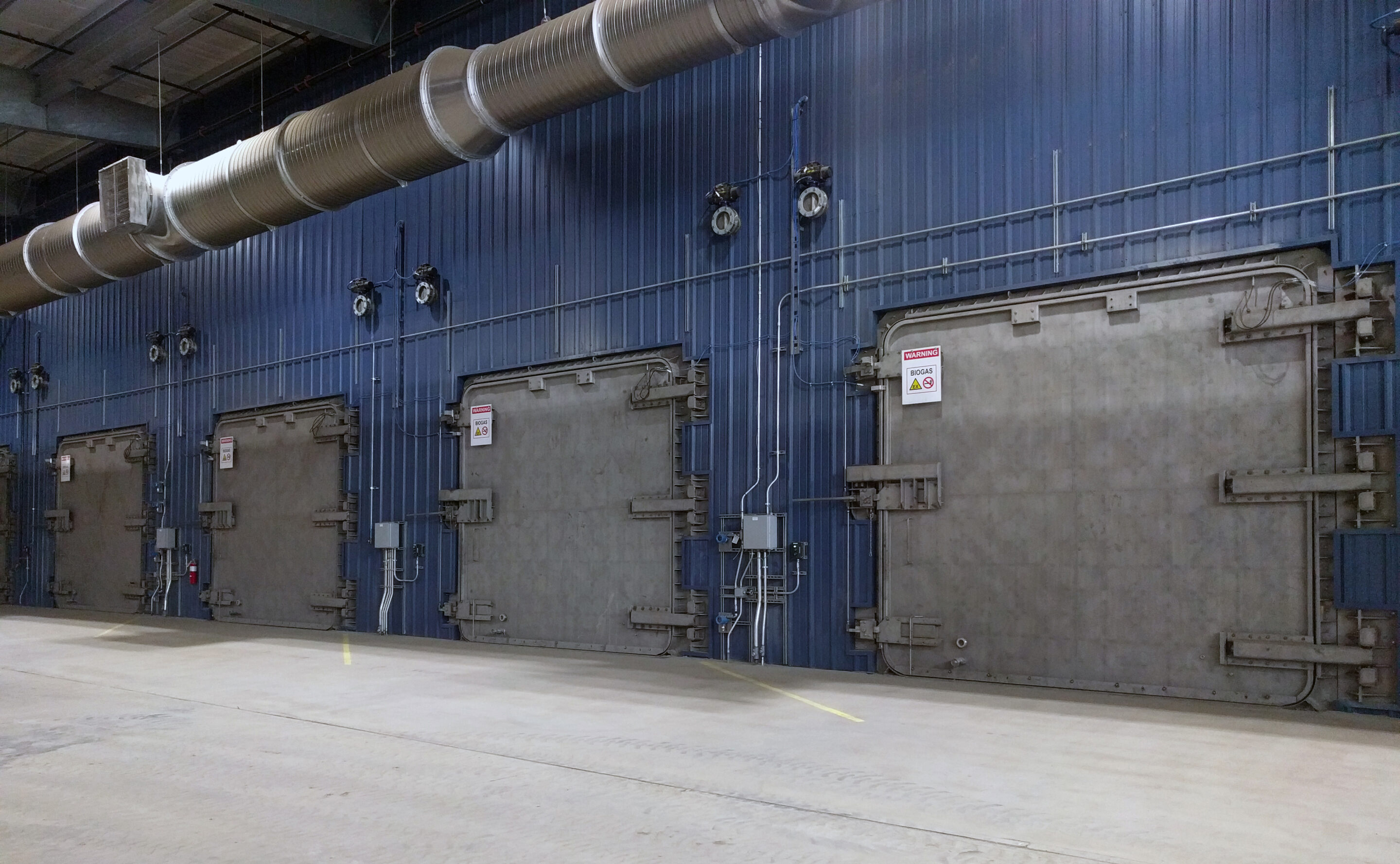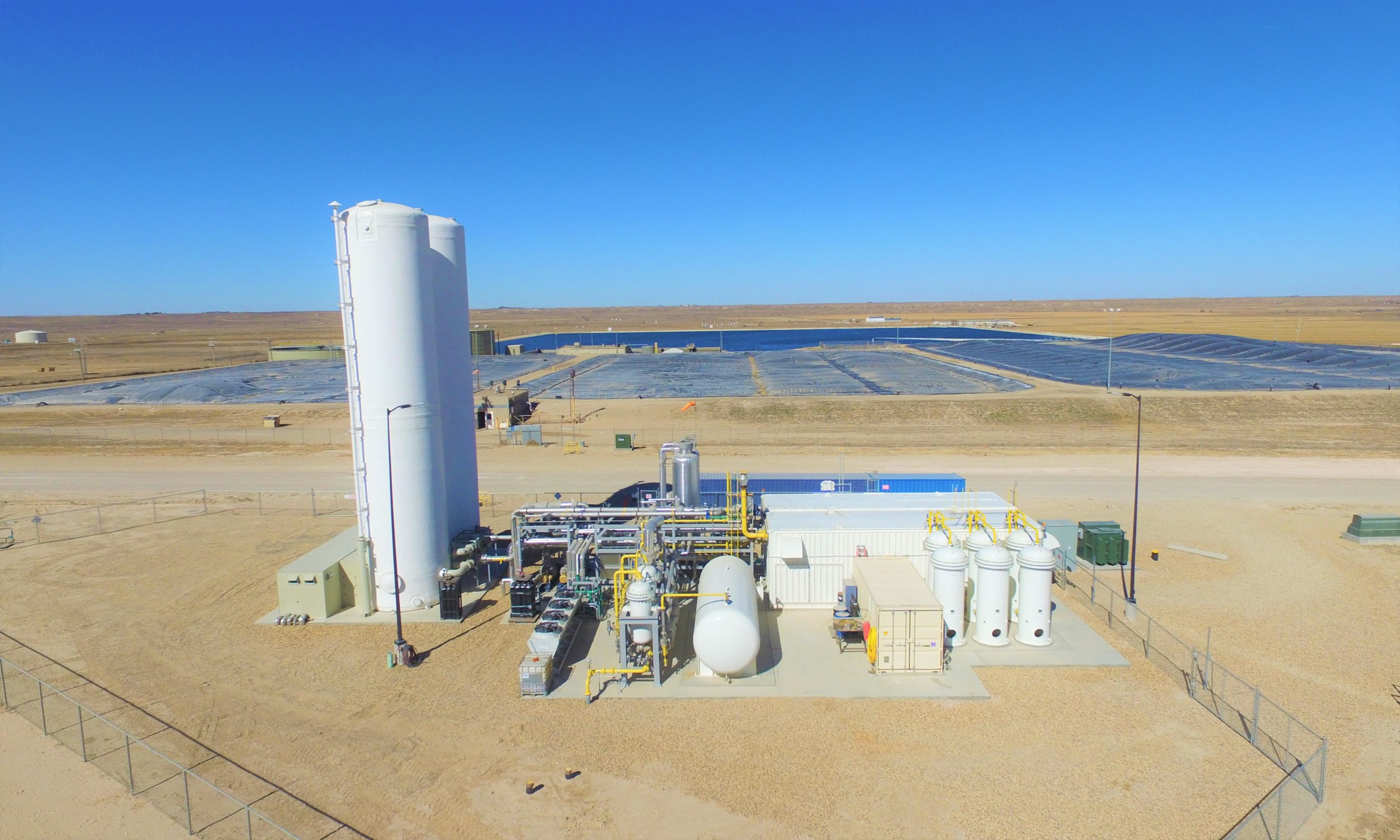Food processing plants produce a significant amount of organic waste, such as food scraps, peelings, and other byproducts. This organic waste can be converted into renewable natural gas (RNG), which can help plants reduce their dependence on non-renewable resources and decrease their carbon footprint. This helps to mitigate the environmental impact of their operations and reduce greenhouse gas emissions. Furthermore, generating RNG can help to improve the sustainability of the plant by diverting organic waste from landfills and using it to create renewable energy, reducing their environmental impact and demonstrating their commitment to sustainable practices.
Additionally, RNG can provide economic benefits, create a new revenue stream, and offset energy costs. This can also help to reduce waste disposal fees and other expenses associated with managing organic waste.
BIOFerm Solutions for Food Waste
Anaerobic Digester
BIOFerm has high solids and low solids AD technology solutions for both pre- and post-consumer food waste.
Gas Upgrading
Process your biogas to valuable pipeline-quality renewable natural gas (RNG).
Combined System
Utilize your facility’s food waste stream as feedstock for anaerobic digestion, producing biogas that is then upgraded to renewable natural gas (RNG).
Featured project – Anaerobic Digestion

BIOFerm constructed a dry fermentation system for the city of Edmonton, who partnered with the University of Alberta, to convert organic waste into energy.
This initiative supported the city’s goal of diverting 90% of residential waste from landfills and reducing greenhouse gas emissions. By integrating the digester into Edmonton’s existing composting facility, the project maximized the value of both the digestate and biogas produced from organic material.
Featured project – GAS UPGRADING

BIOFerm installed a 1-Stage Pressure Swing Adsorption (PSA) gas upgrading plant for Seaboard Energy to generate renewable natural gas (RNG) for pipeline injection.
Seaboard Energy traditionally fueled boilers with gas generated from anaerobic digestion of pork processing waste, but identified gas upgrading and grid injection as a sustainable alternative for their gas to enable the highest return.
